This article is part of our COVID-19 Series to help small enterprises who are most at risk of adapting to the new normal.
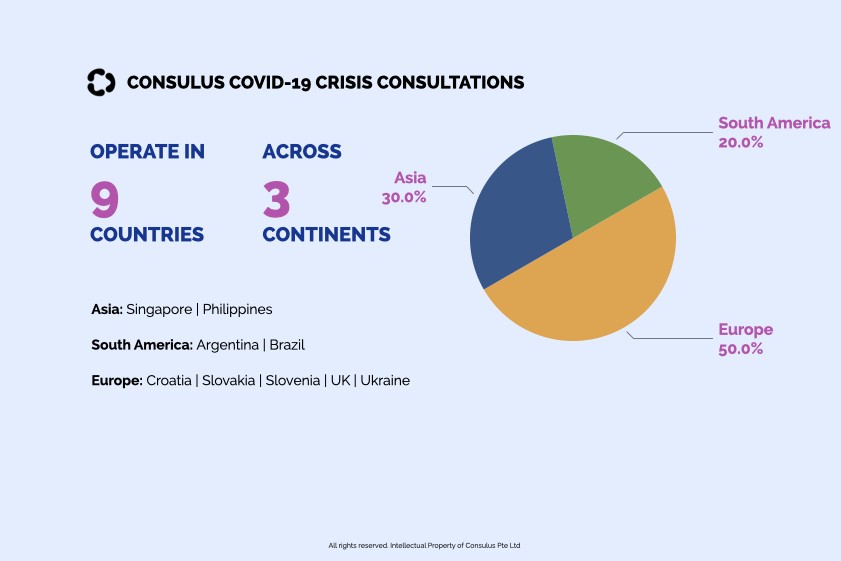
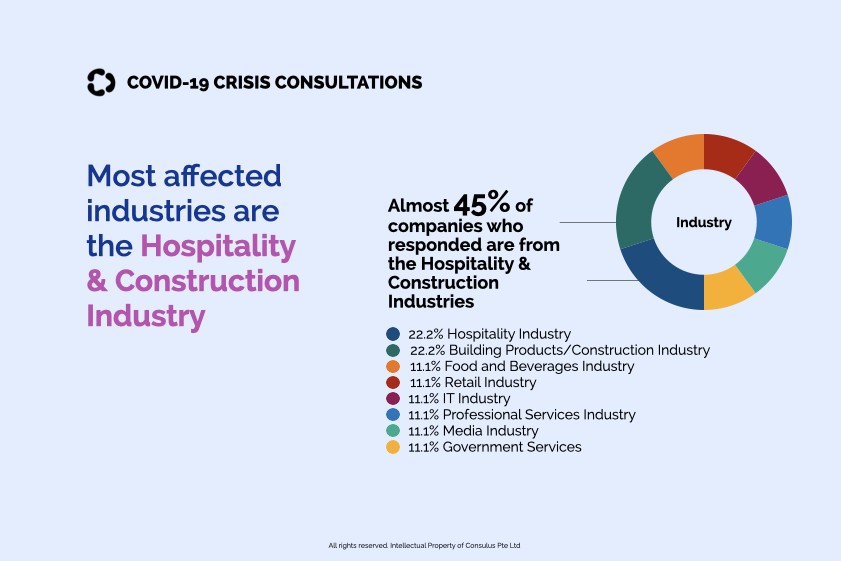
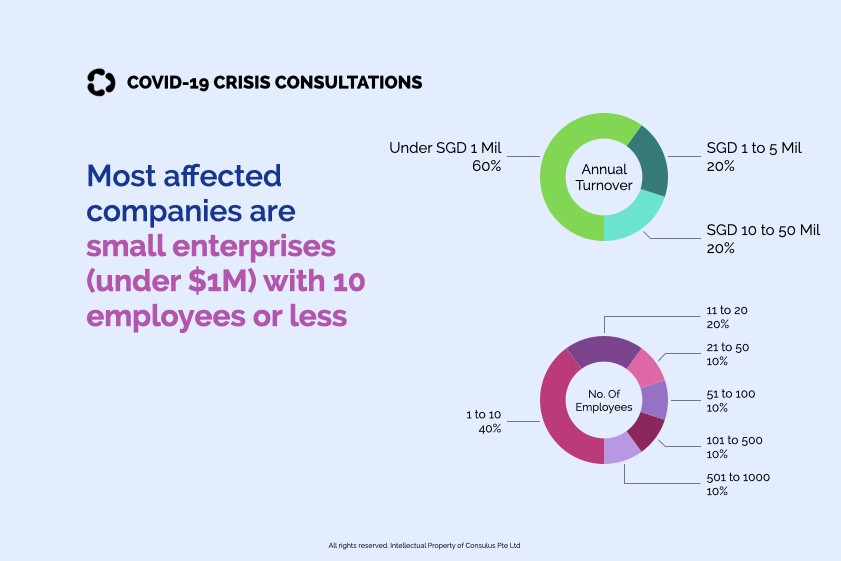
In our survey and subsequent conversations with business owners, it is clear that they are shell-shocked, and it is understandable. Many have seen a severe drop in revenues and delivery capability, which impacts their survivability.
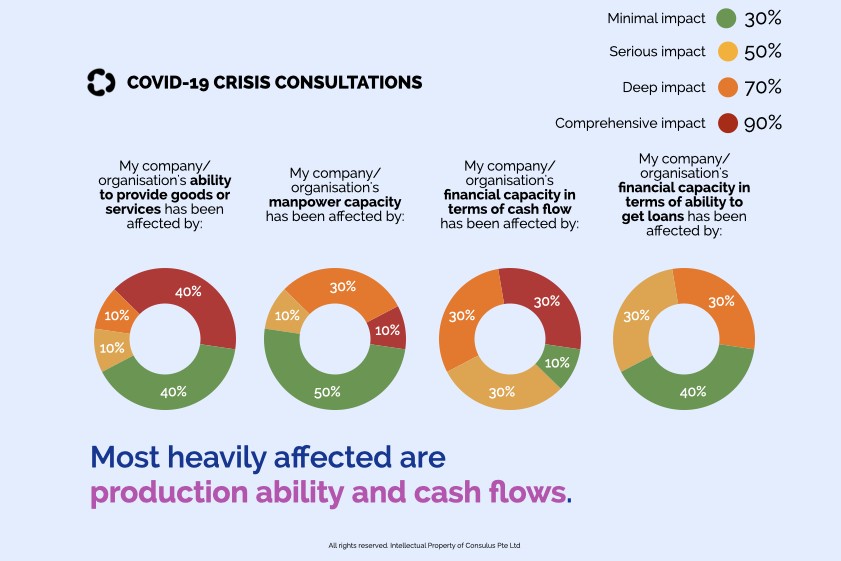
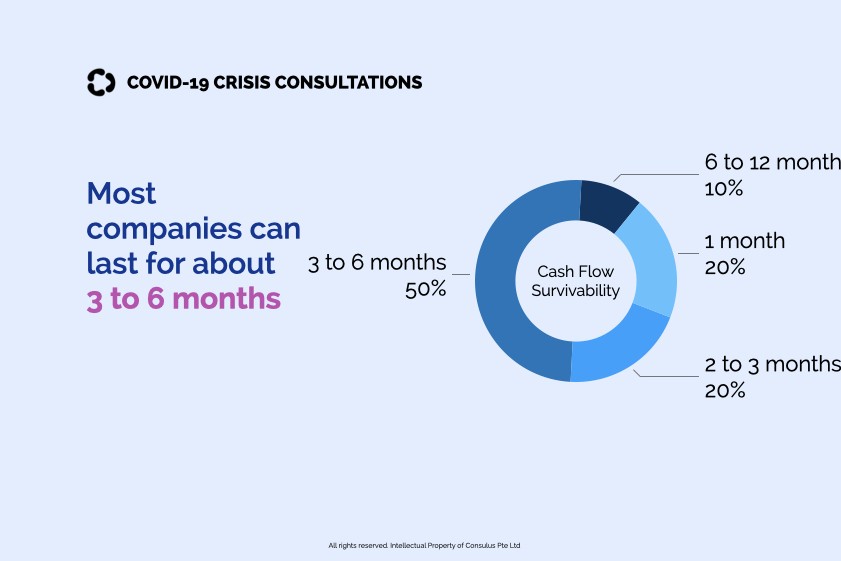
However, to survive the crisis, each enterprise needs to come out of its shock and calmly pivot its business model with courage. Covid-19 will stay with us for quite a while. Rather than hope that things will go back to normal, it is essential to adapt to this new normal to survive like what Airbnb is doing. But this is perhaps the greatest challenge as most business owners shared that their culture is not ready to adapt and transform quickly.
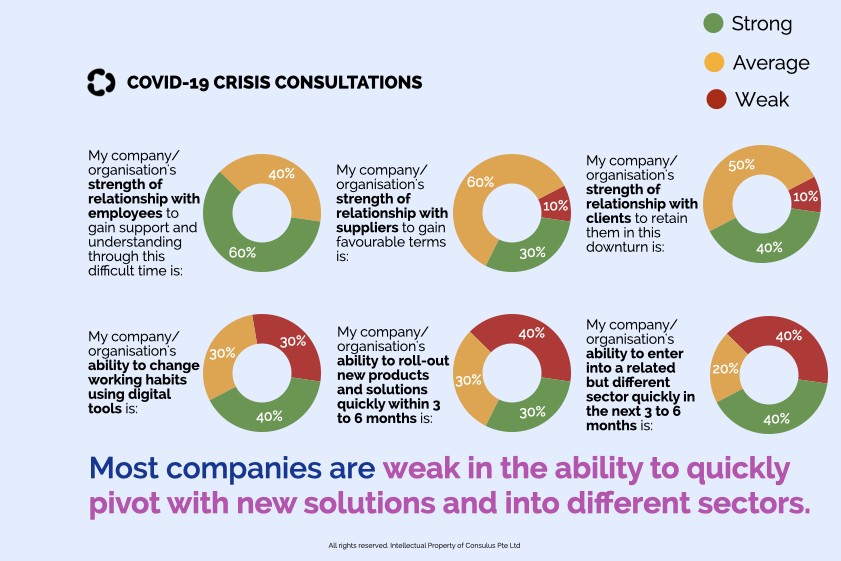
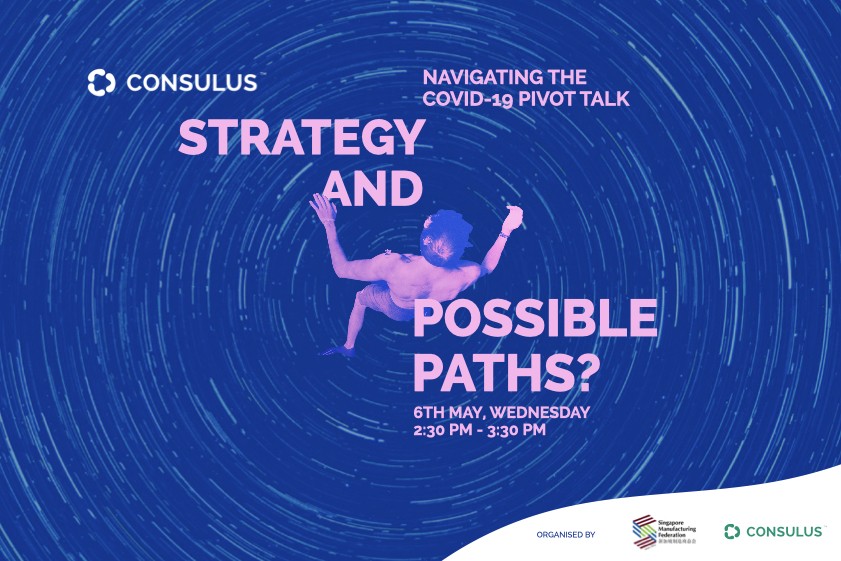
At an online talk with small businesses who are members of the Singapore Manufacturing Federation on Wednesday, I shared how enterprises need to quickly pivot based on the new normal, which we term as the 4S:
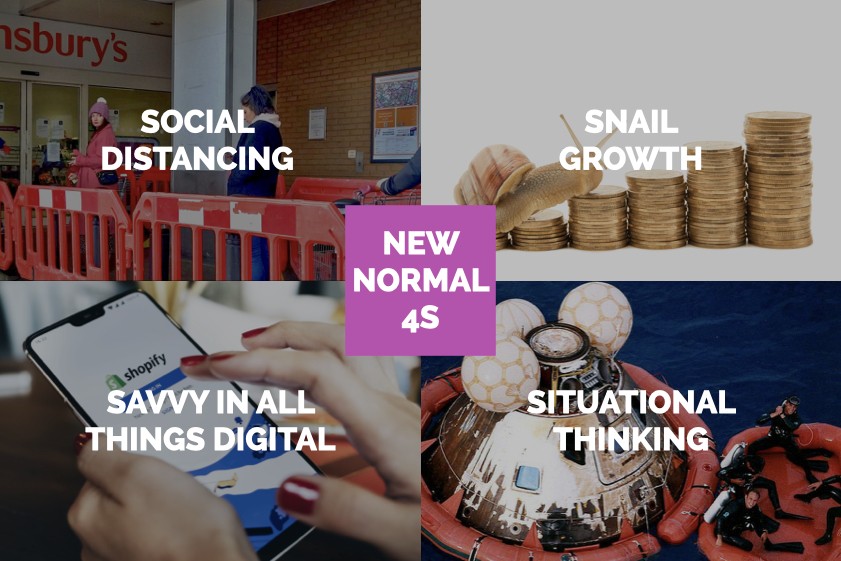
1) Social Distancing Ready?
According to health experts, until a vaccine is found and that could be at least two years away, and until most people on the planet are vaccinated, social or safe distancing will be with us for some time. Airlines and airports are already thinking about how to implement social distancing on seating and security arrangements.
This means that processes for customer engagement and production will need an immediate rethink to ensure that they are realistic in the new normal of social distancing.
We propose using an innovation by design approach which calls for quick assessment, concept, then quickly prototype your new processes in weeks in the following ways:
a) Start with mapping out how social distancing will affect your operations and production. At the same time, consider creative ways to deliver value to your customers and being open to all possibilities, including working with competitors to share risks and costs.
b) Then implement the new prototype process and trial it out within 1 week. The key is to test out new processes early.
c) After testing out the processes, consider how to sustain them in the long term by developing a new set of standard operating procedures.
A lot of small enterprises have implemented new processes, but they did it as a reaction with little thought of sustaining it as they expect things to go back to normal. Our recommendation is to be prepared for the long haul.
2) Snail Growth Ready?
Before Covid-19, the global economy was geared towards mass production and rapid growth. With the sudden drop in the movement of peoples, it has deflated growth from aviation, tourism, hospitality, and events threatening the viability of these industries. The downfall of these industries has a domino effect on all of us.
Until it is safe for the movement of people across borders, the global economy will likely remain in a snail-growth stage. It will be realistic to plan your revenue and cash-flows based on this new normal rather than wait and hold out for business to go back to normal.
a) Start with mapping out what are the possible revenue opportunities and how social distancing, continued trade conflict between the US, and China will affect your forecasts and execution. At the same time consider other revenue opportunities that could be developed based on your core skills. This is especially important for those sectors that require physical presence.
b) Then design a new prototype process and trial it out within one week. Design new sales tools bearing in mind that you are no longer able to conduct your business development or sales efforts like before. For example, if you are in the B2B sector the ability to fly off and meet the client is going to be rare, so how do you keep up with relationships.
And again evaluate the effectiveness before finalizing them as new sales tools.
3) Savvy in all things digital?
We are in the digital age, but still, too many small enterprises did not appreciate the role of technology and digital marketing. Suddenly with Covid-19, being savvy in digital tools and skills can mean life or death for a business. During our consultations, too many small enterprises do not appreciate the value of the various social media platforms for sales opportunities.
a) Map out how your work habits will change and how the various apps and tools can enhance productivity and collaboration at work. Some companies prefer apps with an always-on approach but consider carefully if this does not add undue stress to your staff who already have to juggle with many personal issues. In a crisis setting, an always-on app could be useful, but imagine using this into months and even years. Our advice is to think carefully about the type of culture you like to have before adopting the tools.
b) Map out how you will reach clients in the new normal, what social media platforms do they use: LinkedIn, Telegram, Instagram? Have a conversation with your customers and do not prejudge them. Someone whom you think is senior and might not use TikTok might surprise you. Map out the personas and the type of social media platforms they might use before creating your digital marketing plan to engage them.
4) Situational Thinking Ready?
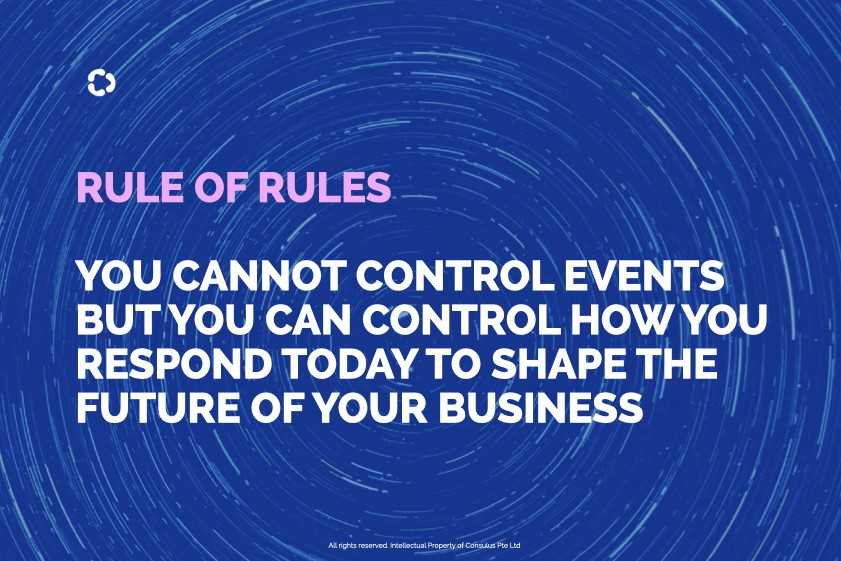
Situational thinking will be more valued than strategic thinking in the age of Covid-19, and everyone in the company must adopt such a mindset. When the unexpected happened to Apollo 13, it was situational thinking that enabled NASA’s team on the ground and the astronauts on board to pivot and safely return to earth calmly.
Likewise, you have to assess your situation with the following awareness:
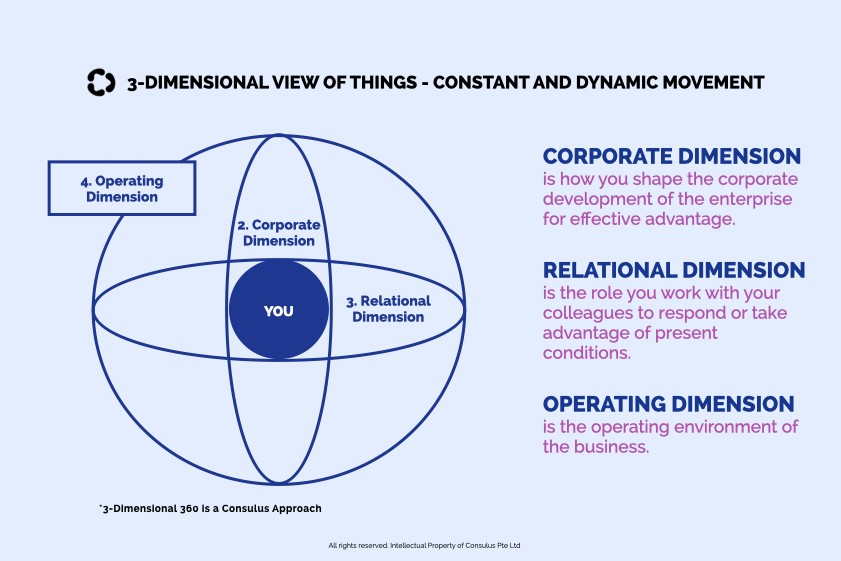
Any enterprise is a sum of ability, influence, and differentiation. During Covid-19, it is crucial to assess the impact on each one:
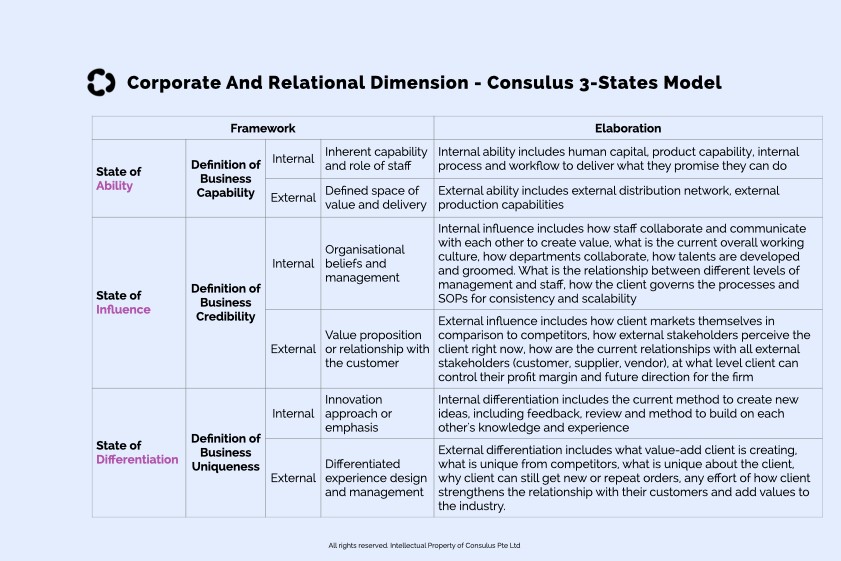
And then assess the environment accordingly with the following factors from Political, Technology, Social, and Competition.
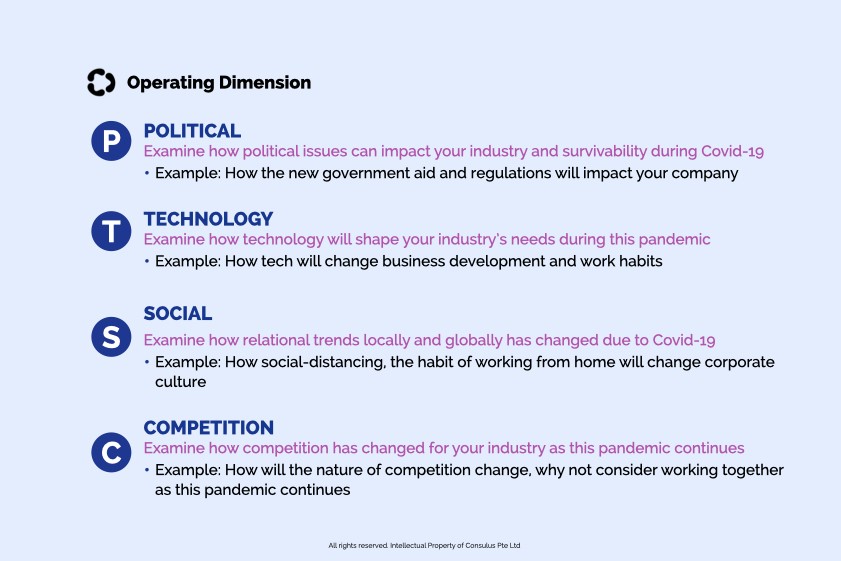
In our assessment for an events company with an existing e-commerce platform, this was the following assessment:
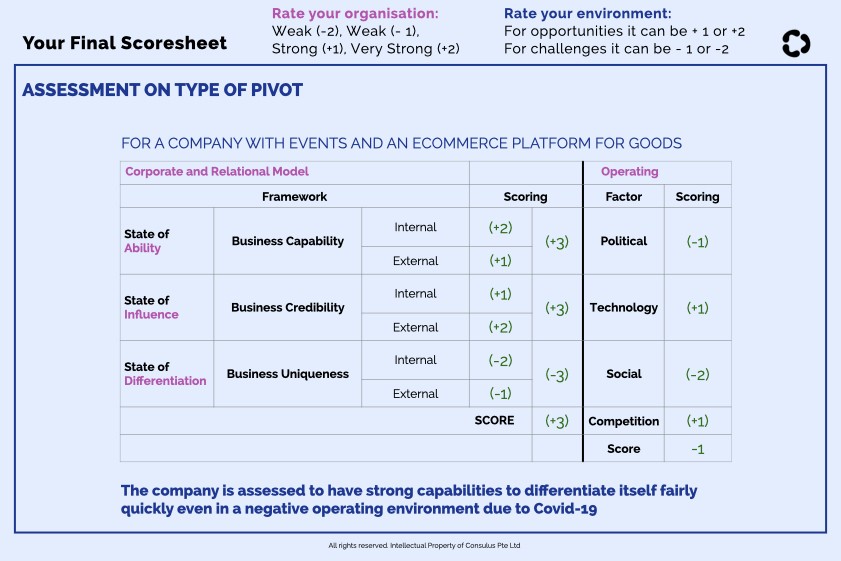
As such, the recommended approach for the business model that can be executed relatively quickly because of the team’s inherent capabilities is this:
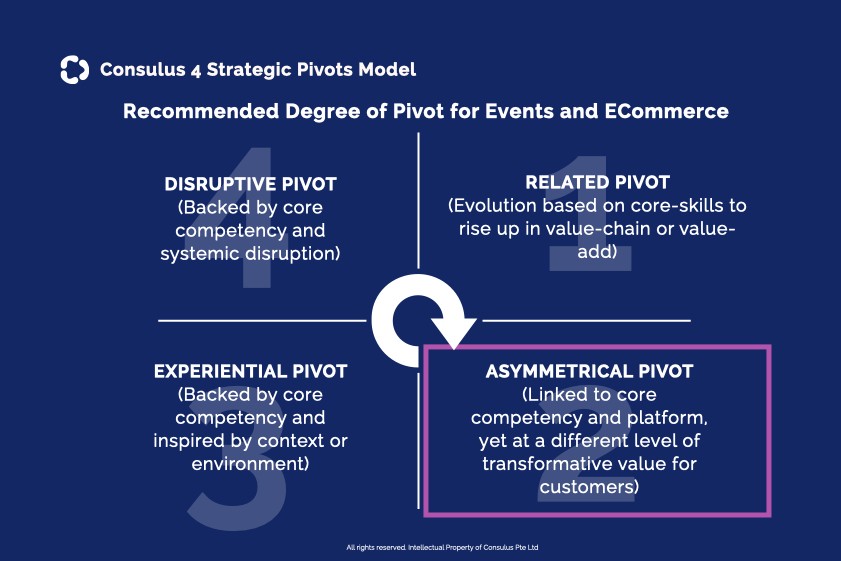
It is important to note that no expert can predict what will happen next with Covid-19. But the best way to get out of a rapidly deteriorating situation is to assess yourself calmly. Review the state of your ship, which is your business, consider what you know, then be courageous to take creative steps, one at a time with a constant awareness about the changing environment. Apollo 13 is a good example, and here is the time for that kind of intelligent courage.




